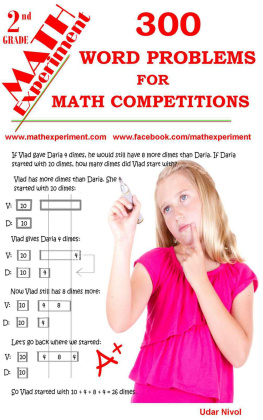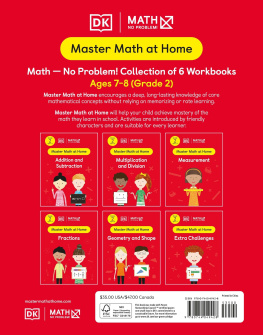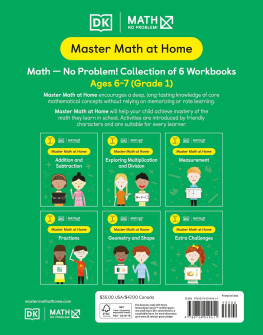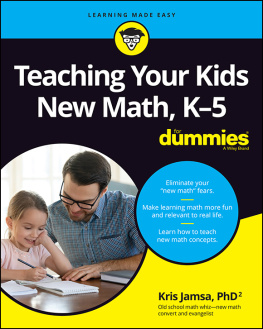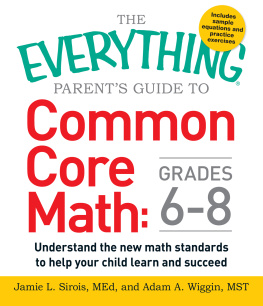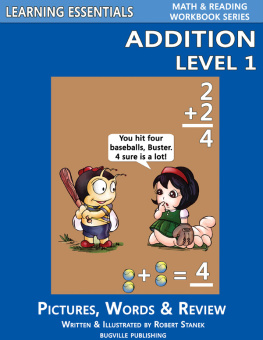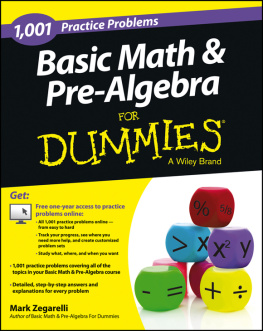For Gene, Sydney, Trenton, Vlad and their unbridled minds.
Why this book?
There is something wrong happening with our kids
It was the summer before my son entered the second grade when I first thought of writing this book. The Olympic Games were going on at that time and all the sport fans were glued to their TV sets or checking the results online. We were watching the games amazed by the determination of those athletes, and I was telling my son how hard they worked to get there, how many hours they spent in trainings and how many things they gave up. He watched them in awe and was already putting together a short list of personal heroes: Michael Phelps, Usain Bolt, Rafael Nadal, Hope Solo, Gabby Douglas, Missy FranklinAnd while my son was plowing the Internet in search for his new heroes birth dates and places, training schedules, hobbies and schools they attended, I was thinking of the coming fall. Second grade. I felt at loss of how I was going to handle that. I have to admit that I was afraid, because I looked around me and I realized that the kids nowadays dont learn as we used to do when we were like them. I had desperately tried to find reasons for that. I read dozens of books, talked to child psychologists, parents, teachers, leaders of homeschool organization, scientists, but I cant say I have a definite answer. What I can say for sure is that a lot of things have changed since I was at my sons age and we are all witnesses to them culture, technology, entertainment, attention span, food, curriculum, responsibilities, the pace of day to day life.
There is one statement that I hear quite often and has already become a clich: "there is something wrong happening with our kids' Math and Science education nowadays". I hear it in talk shows, presidential campaigns, on National Public Radio, you name it. And the more we hear about it, the more we refer to it as a fact. There's really not much we can do about it, it's just a fact.
I think we have become complacent. We've sort of lost our way. We are lagging the rest of the world, and we are lagging it in pretty substantial ways.
- Arne Duncan, Secretary of Education
Some people started to look at other countries, particularly in Asia, to understand what it is that they do better than the US.
The United States is failing to develop the math skills of both girls and boys, especially among those who could excel at the highest levels, a new study asserts, and girls who do succeed in the field are almost all immigrants or the daughters of immigrants from countries where mathematics is more highly valued.
- New York Times
The administrations came up with radical education strategies:
The National Assessment of Educational Progress found fourth-graders had made no learning gains since the last time the NAEP math test was given, in 2007. Previously, fourth-graders had made scoring gains on every NAEP math test given since 1990. In a statement, Secretary of Education Arne Duncan called the NAEP results "unacceptable," and said they underscore the need for "reforms that will accelerate student achievement." While not focused specifically on math, the Obama administration's education strategy calls for adopting tougher measures, such as opening more charter schools and linking teacher pay to performance.
- Wall Street Journal
There is nothing wrong with our teachers
I was very well aware of all this, but I had not really paid very much attention to it until my son started the school. The school was great but I wanted to be proactive and try to find potential flaws. Of course, I started with the teachers - the easiest target, they deal directly with our kids. Well, I was wrong. The majority of teachers that I have met made a positive impression on me. I have all the admiration in the world for what they do. I sense a feeling of humbleness when I sit next to them in the parent-teacher conferences. They have a huge responsibility that goes beyond following the curriculum and making sure the students pass the tests. They have to inspire, to make the students ask for more, to provide role models and make them understand that there's something out there that can't be found on Facebook, there is no app for it and no computer game to emulate it. It is the knowledge. It can be grasped only with passion, patience and thirst for learning and it is the only source for progress. And it is not only the teachers who have this responsibility. The parents play a huge role too. If we can provide this to our kids, half of the problem is solved. And indeed, I started to perceive this new tendency lately. We slowed down blaming each other and talking about wrong curriculum, wrong school systems, unmotivated teachers, lazy students, the influence of TV programs and video games, and started to talk more about what we can change from within:
Teachers must inspire; principals must lead; parents must instill a thirst for learning, and students, you've gotta do the work. And together, I promise you, we can out-educate and out-compete any nation on Earth. Help me recruit 100,000 math and science teachers within ten years, and improve early childhood education.
- Barack Obama, Democratic National Convention , 2012
I t is our mentality that we have to fight with
There is a whole paradigm that needs to be shifted here, in the US and not only. We often hear people say "math was never my strong suit" or "I was never good at math" or, even worse, "school sucks". There were times when one would have felt ashamed to say that. But now it became trendy. There are countries where the young math wizards are respected and considered role models. In the US and other western countries, they are just a bunch of boring nerds. What caused this shift? Pop culture? Hollywood? Media? I don't know, I let the sociologists answer.
Theres just a stigma in this country about math being really hard and feared, and people who do it being strange. Its particularly hard for girls, especially at the ages when people start doing competitions. If you look at schools, there is often a social group of nerdy boys. Theres that image of what it is to be a nerdy boy in mathematics. Its still in some way socially unacceptable for boys, but at least its a position and its clearly defined.
- Melanie Wood, the first girl who ever made it to the US Math Olympic Team, in 1998, cited by New York Times
Lets put the Village back together
I remember my small town in Easter Europe from beyond the Iron Curtain, quivering with excitement when the Math contests were approaching. The Math Olympics were on everyones lips, and the excitement grew bigger and bigger as the students went through the eliminatory contests the school contest, then town, county, country and only the best from the best were qualified to go to the International Olympiad. It was everyones dream, the supreme achievement, the recognition of a very hard work and talent. The public school was in the middle of all this action. Everything was driven by the school and the teachers who were willing to spend countless unpaid hours to train the students for these contests. Their prestige and fame were at stake, as well as their professional and human fulfillment.

